Newspoll: Virus aside, Anthony Albanese must take the blame for Labor’s annus horribilis

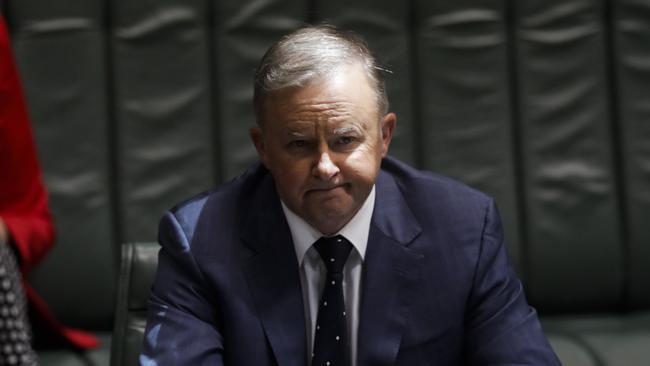
The Prime Minister’s pragmatism and restrained parliamentary performance have translated into Coalition confidence, unity and a bedrock of question time responses that have answered decades-old dilemmas for Liberal leaders, such as climate change, welfare and industrial relations.
This parliamentary year was truncated, introduced radical technological change, saw a Prime Minister attend question time by video, recognised MPs’ votes who weren’t present, delayed a budget and made protection from the coronavirus the people’s priority.
Morrison’s parliamentary strategy was faced with a COVID-19 shutdown for months and a power challenge from the premiers. His response was to simultaneously manage the health and economic crises with the national cabinet of leaders and set the political and policy agenda in a way that squeezed Labor as an opposition and achieved outcomes in the Senate.
Anthony Albanese has been unable to use the parliamentary processes of a shortened parliamentary year to assert any pressure on Morrison as leader or use parliamentary tactics to inflict any damage on the Coalition.
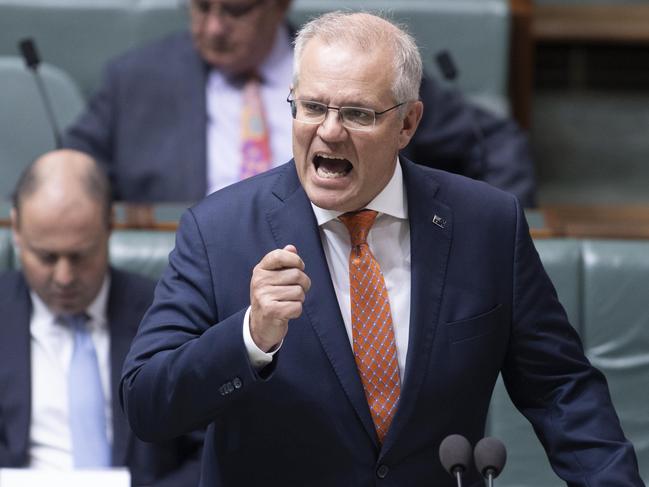
While the Opposition Leader’s task has been almost impossible, it is unfortunate for Labor that Albanese’s parliamentary performance and strategy have actually made things worse for the ALP.
Starting the parliamentary year in February ahead of Morrison in the polls and politically in front on climate change, wages growth, industrial relations, superannuation, emergency relief and aged and disability care, Albanese finishes the 2020 parliament behind in them all.
When parliament resumed in February, Labor was in front on a two-party preferred basis in Newspoll by 52 to 48 per cent.
Morrison’s image had taken a battering over his holiday to Hawaii during the bushfires. Albanese was ahead on better prime minister 43 to 40 per cent. Morrison’s satisfaction with voters was just 38 per cent and dissatisfaction was 58 per cent, while Albanese’s satisfaction was 43 per cent and dissatisfaction 40 per cent.
But Morrison’s response to the coronavirus changed the rules of everything, and Albanese quickly fell way behind.
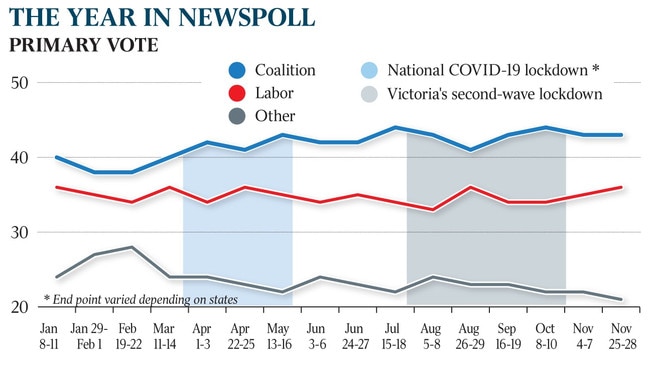
As parliament finished for the year, the Coalition’s two-party preferred support in Newspoll was up to 51 per cent, on the back of a three-point primary vote rise, compared with Labor’s 49 per cent. Morrison’s personal support had soared dramatically to 66 per cent satisfaction and just 30 per cent dissatisfaction, and he had leapt to a 32-point lead over Albanese as better PM.
Albanese’s inability to quell ALP divisions on climate change, his predisposition to personally attack Morrison, and his inability to effectively use parliamentary processes — even after demanding MPs return to Canberra for sittings — to exploit Coalition weaknesses have diminished his authority.
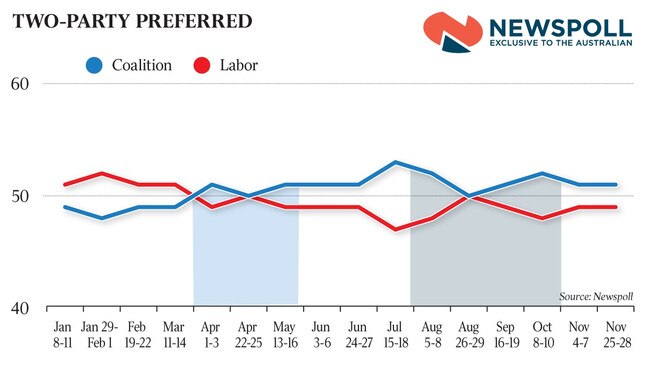
Even as parliament began and the coronavirus spread, Labor didn’t appreciate the significance of Morrison and Health Minister Greg Hunt declaring a pandemic emergency before the World Health Organisation, or Home Affairs Minister Peter Dutton closing the international borders.
When a restricted parliament resumed with limited numbers of MPs and video appearances, Albanese looked too negative as Morrison introduced massive job support schemes and radically upgraded health responses.
Albanese encouraged criticism of Dutton over the deadly NSW Ruby Princess cruise ship quarantine breach but attacked Hunt and Josh Frydenberg for criticising the far more catastrophic failure of Victorian Labor’s hotel quarantine and the deaths of more than 800 people.
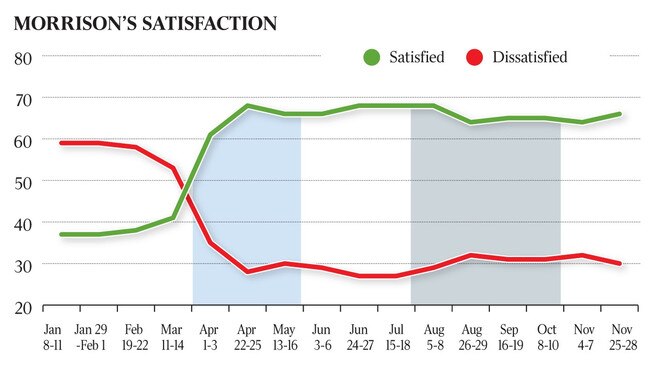
His parliamentary attack on Morrison over aged-care deaths in Victoria and a lack of commonwealth preparedness was deflected because the origin was the coronavirus hotel quarantine breakout. His plan to embarrass Morrison and the Treasurer over criticisms of Victoria backfired badly when it turned into a Coalition show of force and angered many Labor MPs.
Even the Coalition’s grave weakness over the $1.2bn Robodebt welfare case was mishandled in question time, with insufficient prominence being given to former Labor leader Bill Shorten’s campaign before the court decision. Instead of reaping a benefit from Coalition miscalculation, Labor was playing catch-up and unable to ignite a political backlash.
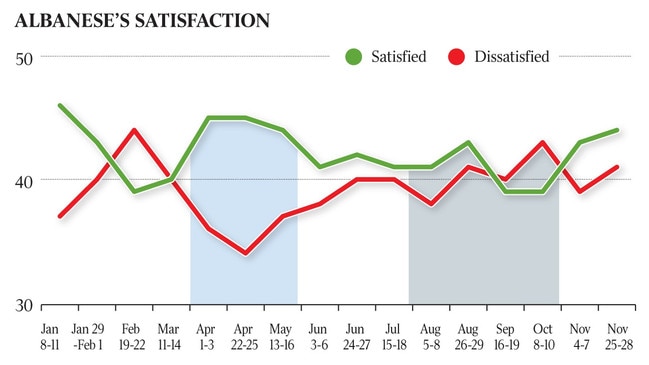
As for relations with China, Albanese’s perfect parliamentary position of declaring he would not ask questions about the official Chinese fake photo of an Australian soldier slitting the throat of an Afghan child was derailed by his bad timing on raising objections to the foreign relations legislation.
Reinforcing Morrison’s refusal to enter into rhetorical flourishes about China in parliament, the passing of the legislation to allow the commonwealth to overturn state government deals with foreign nations was further evidence of Labor’s impotence and Albanese’s ineptitude.
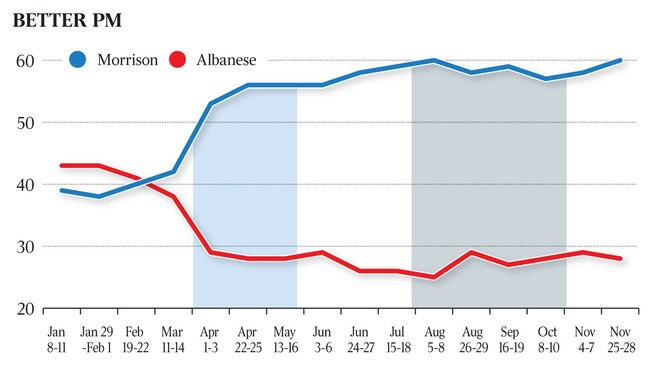



Scott Morrison has turned the most disrupted and demanding parliamentary year since World War II into a clear victory for his leadership, a stunning turnaround for the Coalition and an iron endorsement for incumbency.